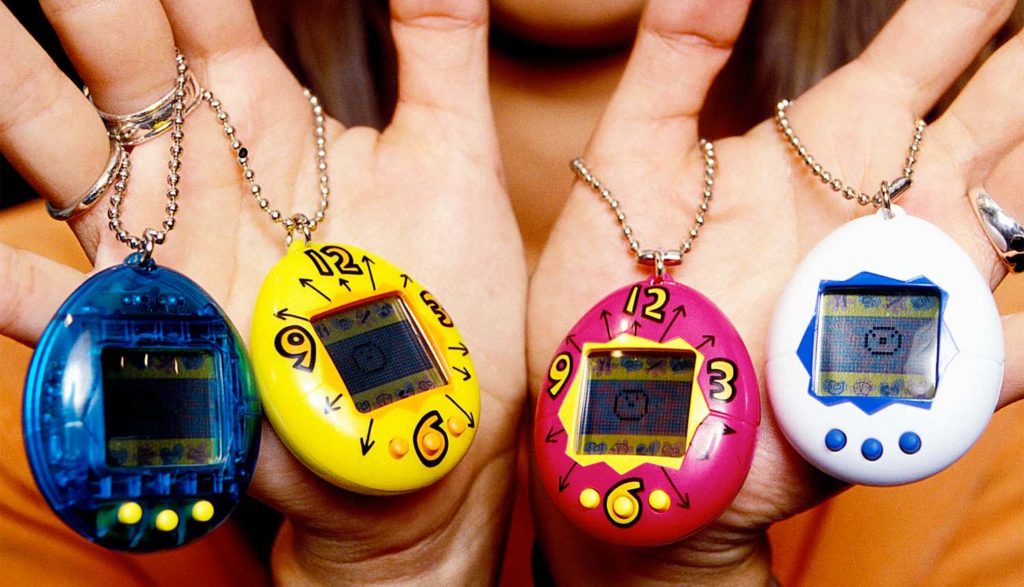I should sit down and spend time with my son, you think to yourself as you drive home from a long day at work. He’ll be so excited to see me.
Unlike your parents coming home, however, greeting you and playing Jenga or Mario Kart with you when you were little, you instead open your front door to a silent, empty household. You go to the middle of the dark living room and grab a virtual reality headset, strap on your special VR gloves and boot up the machine. Almost instantly, your dark house is transformed into a lovely beach home with a spectacular view of the ocean and your favorite music softly playing in the background.
And there he is: your son—your virtual son—waiting for your virtual embrace. He’s fully customizable. He never complains about anything. And he likes all the same things you do. Best of all, he’ll never age—you decided to turn that feature off. And should you ever get bored of him, you can delete him or leave this virtual person behind without a second thought. It’s just you, alone in a dark room wearing an attachable gaming console, paying “a small monthly fee” to be the parent of a virtual child.
Ah, parenthood.
At least, that’s the general idea that Catriona Campbell, an expert on AI and emerging technologies, says could be reality in 50 years. According to the Daily Mail, someone would be able “to cuddle, feed and play with their digital offspring as though it were a real child.” And later, “They will also be able to choose how quickly the children grow up, if at all, and can share conversations and listen to a baby’s coo and giggle as part of the vision for the futuristic technology.”
Campbell calls the generation that could experience this technology as the “Tamagotchi generation,” referring to the personal digital pets popular in the late 1990s that “players” could take care of and grow up. But unlike Tamagotchi and other games that focus on nurturing a digital being, such as Nintendogs and The Sims, these virtual humans will allegedly be “indistinct from those in the real world,” according to Campbell’s book AI by Design: A Plan for Living With Artificial Intelligence.
Perhaps there’s something to be said about a program acting as a way to help would-be parents see if they’re ready for parenting. But from there, the implications of raising a virtual child get uncomfortably uncanny: Your new baby can be customizable, from its physical traits to its personality. As the user, you can turn off its ability to age, locking it in at your preferred stage of virtual life. It turns on and off at the click of a button, and it can even be deleted if you’re bored with it. The nonchalant nature makes the whole thing less like a parenting simulator and much more like a trip to Build-a-Bear. And, obviously, it’s a long way from raising a real, flesh-and-blood child, with all of its attendant needs, messes and imperfections.
Since these children are supposedly, as stated above, “indistinct from those in the real world,” Campbell “can see virtual children becoming an accepted and fully embraced part of society in much of the developed world.” These virtual children “cost nothing to feed, take up no space, and remain healthy for as long as they are programmed to ‘live.’” In other words, they’re easy, require no personal sacrifice and can be discarded. And with many in the younger generations accepting a nihilistic viewpoint that human life is meaningless and worthless, that deletion feels even more poignant and, potentially, dehumanizing.
Those who believe overpopulation is an existential threat to our planet might see the intent behind this idea as a noble one: not bringing a real baby into a world of “overcrowded mega-cities rife with crime, disease, and extreme food shortages.” Indeed, Study Finds refers to the virtual kids as “environmentally-friendly digital children who will not deplete the planet of any of its natural resources.” Of course, these quotes indicate viewpoints that—whether intentionally or not—believe that nonexistence is better than existence and that humanity is simply made to deplete and destroy.
But as Christians, we know that we are made in the image of God and inherently valuable as beings who are intricately and lovingly made (Genesis 1:26, Psalm 139:13-15). Because we were created in a way that uniquely elevates us above all other creatures, all human beings are not only inherently valuable but also deserving of inalienable rights.
The problem is not that such a program might exist in the future. After all, it sounds similar to an interactive, hyper-realistic version of The Sims, right? The issue comes from the fact that these easily editable, easily discardable virtual children are depicted as a less-problematic alternative to their inherently valuable flesh-and-blood counterparts.
And with the arrival of each increasingly realistic AI simulation or virtual alternative to authentic humanity, the blurring of those lines could further erode the value we place on every unique individual made in God’s image.







Recent Comments